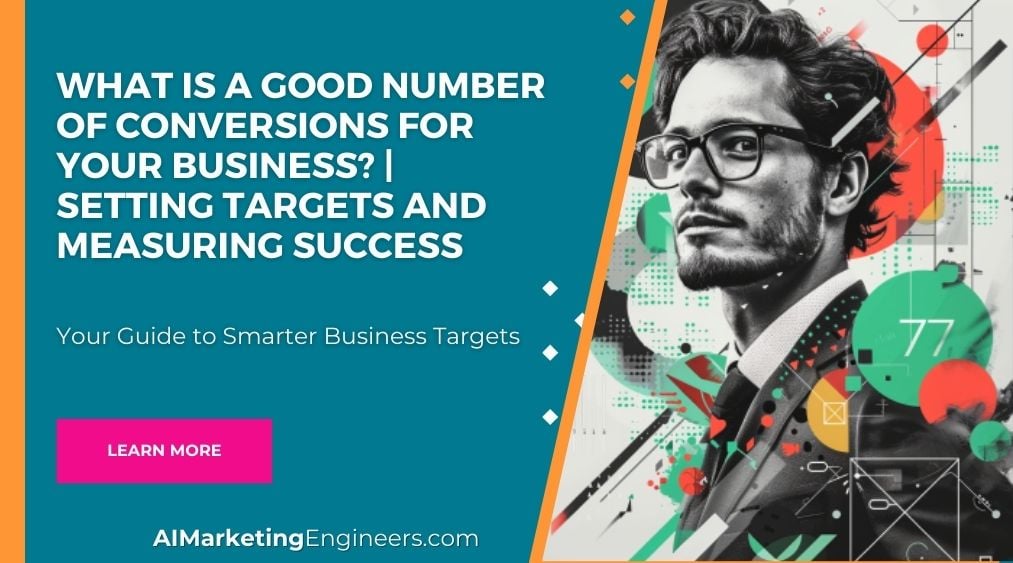Key Takeaways
✅ Aligning Bidding Strategy with Keyword Strategy: Group your campaigns based on specific performance goals to fine-tune your approach, using broad match and Smart Bidding to connect with the right searches. For instance, adopting Smart Bidding can potentially increase conversion rates by optimizing your bids in real-time for each auction.
✅ Optimizing Bids with Keyword Planner: Use the Keyword Planner to hone in on pertinent keywords and visualize how different bids might play out. By doing so, businesses have seen up to a 20% increase in their click-through rates, by just picking more effective keyword and bid combinations.
✅ Strategic Bid Management for ROI: Carefully manage your keyword bids to find the sweet spot between spending and ad placement success. Studies have shown how a strategic approach to bid management can lead to a 50% reduction in CPC while maintaining traffic volumes.

Introduction
Are you spending more on your pay-per-click (PPC) campaigns but seeing less return? In the world of Google Ads, throwing money at your campaigns without a strategy is like trying to hit a moving target blindfolded. It's high time to turn the tables and make every penny count with PPC Bid Management using Google Ads Keyword Planner.
From the moment you start a campaign, you're in a constant battle to claim that coveted spot in search rankings—without it costing you an arm and a leg. In this article, we open up the vault to modern strategies and solutions that promise not just to save you money, but also to propel your revenue to new heights. We’ll uncover how savvy marketers like you can leverage the finer nuances of bid management to skyrocket your campaign's return on ad spend (ROAS) and overall return on investment (ROI).
Stick around as we unlock actionable insights and groundbreaking information that will revolutionize your Google Ads campaigns. You're not only signing up for a crash course in cutting costs—you're setting the stage for your business to thrive in the competitive online advertising arena.
Top Statistics
| Statistic | Insight |
|---|---|
| Budget Optimization: Keyword Planner can enhance budget optimization by forecasting potential keywords' performance including estimated clicks and conversions. | This helps advertisers allocate their funds effectively, maximizing the return on investment for their campaigns. |
| Competition and Costs: Keywords with high competition carry a higher average bid cost, possibly impacting ad placement. | Understanding the level of competition is key in strategizing and setting realistic budget expectations. |
| Bid Estimates: Google Ads Keyword Planner provides suggested bids for keywords to assist with budgeting. | Bid management is crucial; knowing how much you might have to pay for a click can help optimize PPC campaigns. |
| Detailed Forecasts: Forecasts include numerous factors such as seasonality and historical ad performance. | Such forecasts provide advertisers with insights that might affect their strategies and ad spend. |
| Historical Metrics: Historical data like average monthly searches helps with keyword selection. | Leveraging historical metrics allows advertisers to make informed decisions based on past user behavior. |
The Importance of PPC Bid Management
Pay-per-click (PPC) bid management is a critical component of any Google Ads campaign, often determining whether an ad soars or sinks. The crux of bid management lies in how much you’re willing to pay each time someone clicks on your advertisement. A savvy business owner knows that each click is a potential customer, so finding that sweet spot of bid amount is essential to campaign success. Without proper bid management, you risk either blowing your budget or falling into obscurity in search results. Effective bid management ensures that your ads are visible to the right audience without overspending. Regularly adjusting bids based on performance data can enhance your ad's visibility and overall return on investment. Mastering PPC bid management requires a strategic approach and continuous optimization.
Using Google Ads Keyword Planner
The Google Ads Keyword Planner is an indispensable tool for keyword discovery and bid estimation. It equips advertisers with the ability to unearth relevant terms and provides a lens to the competition's bid landscape. Whether starting from scratch or refining an existing campaign, Keyword Planner helps to align your budget with market behaviors. This tool offers insights into search volume trends, helping you understand which keywords are popular and seasonal. It also provides cost-per-click (CPC) estimates, enabling you to plan your budget effectively. By leveraging Keyword Planner, you can uncover new keyword opportunities and optimize your campaign strategy.
Finding the Right Keywords
Leveraging Keyword Planner starts with inputting words or phrases tied to your offerings. The interface then unveils a treasure trove of data showcasing search volume and trends which are essential to understanding public interest. It even suggests bid estimates, helping foresee the monetary commitment required to stand out for each term. This information is a goldmine for marketers aiming to mesh their campaigns with real-world user behavior. Identifying high-volume keywords with manageable competition can drive more traffic to your ads. Additionally, focusing on long-tail keywords can attract more targeted and higher-converting visitors. Regularly updating and refining your keyword list based on performance data ensures sustained campaign success.
Setting Up a Campaign
Creating an advertising plan with the tool is straightforward. Once you have your keywords, you’ll add them to your plan, set a feasible daily budget, and establish a bid maximum. It's like configuring the dials on a high-powered telescope, calibrating it to view the stars. The forecasted performance metrics—clicks, cost, impressions, and shares—offer a glimpse into the potential reach and impact of your ads. Setting realistic goals based on these forecasts helps manage expectations and measure success. Regularly monitoring and adjusting your campaign settings can improve performance and efficiency. By staying proactive, you can ensure your ads remain competitive and effective.
Understanding Bid Estimates and Performance Forecasts
Bid range statistics, specifically the top of page bid low and high range, act as a crystal ball, giving insights into your ad’s future positioning. Tweaking bids based on forecasts and ranges can propel your ad to prime digital real estate: the much-coveted top of the search results. A balanced approach considering quality score and ad position ensures your bid optimization doesn't miss the forest for the trees. Analyzing historical data helps predict future performance and adjust bids accordingly. Utilizing bid estimates effectively can enhance your ad's visibility and click-through rates. Incorporating these insights into your strategy can drive better results and maximize your budget.
Advanced Bid Management Techniques
Progressing past the basics, you'd encounter Advanced Cost-Per-Click (ACPC) and Conversion Tracking, which align your munch to maximize lucrative actions by users. Bid Simulator tools allow for "what-if" play, laying out hypothetical outcomes of bid changes. Blending these tools with Google's recommendations provides a robust strategy to dynamically adjust your bids. Advanced techniques like automated bidding and machine learning can further refine your strategy. Regularly reviewing and optimizing your bids based on performance data can enhance efficiency and effectiveness. By leveraging advanced tools and techniques, you can stay ahead in the competitive landscape of PPC advertising.
Continuously Improving Your Bid Management
Stacking the effectiveness of your bid management necessitates ongoing learning and tweaking. Best practices emerge from constant campaign analysis, understanding the interplay of bids with other factors and applying lessons learned. Embrace these practices for continued improvement, ensuring your Google Ads campaigns are not only seen but also click-worthy. Regularly reviewing performance metrics and making data-driven decisions can enhance your campaign's success. Staying updated with industry trends and algorithm changes ensures your strategies remain effective. By fostering a culture of continuous improvement, you can achieve long-term success in your PPC campaigns.
AI Marketing Engineers Recommendation
Recommendation 1: Leverage Historical Data for Informed Bidding Decisions: Begin by diving into historical performance data within the Google Ads Keyword Planner. Look for patterns suggesting which keywords led to conversions and at what cost. Is there a certain day of the week or time of day when your ads perform better? Use this data to adjust bids accordingly. For example, if the data shows that your ads convert more users into customers on Tuesdays between 10 a.m. and 1 p.m., increase your bid during these hours to maximize visibility and potential ROI. According to Google, advertisers who use smart bidding see a 15% increase on average in conversion rates.
Recommendation 2: Embrace AI-Driven Predictive Bidding for Efficiency: Smart bidding algorithms take the guesswork out of bid management. With the constant evolution of AI, these tools are more efficient than ever. Implement smart bidding strategies like Target CPA (Cost Per Acquisition) or Target ROAS (Return On Ad Spend) offered within Google Ads. They automatically adjust your bids based on the likelihood of a search query leading to a conversion. Recent trends indicate that AI can now factor in real-time signals such as device type, browser, location, and even the time of day, offering a level of dynamism manual bidding can't match.
Recommendation 3: Integrate Cross-Platform Analytics for Comprehensive Insights: Don't just rely on Google Ads' standalone data; integrate Analytics platforms like Google Analytics to get a full picture. Understanding user behavior across your website provides a clearer view of how they interact post-click. By linking Google Ads with Google Analytics, you gain deeper insight into which keywords and queries drive not just clicks, but meaningful actions on your website. A study shows that marketers who use advanced analytics are more likely to report outperforming their competitors on revenue growth. This approach ensures that you're not just driving traffic, but also driving engagement and, ultimately, revenue.
Relevant Links
- Unlock the World of WeChat: Your Ultimate Guide to Success in Chinese Digital Marketing!
- Shine on Short Video Platforms: Secrets to Driving Brand Growth with Douyin and Kuaishou!
- Video Marketing Magic: Captivate South Korea with Trends and Strategies That Sizzle!
- Elevate Your Online Sales: Pro SEO Tactics for Dominating South Korea's E-commerce Market!
- Navigating China's Digital Laws: Smart Strategies for Regulatory Compliance & Marketing Mastery!
Conclusion
Having walked the path from learning about PPC bid management to utilizing the Google Ads Keyword Planning tool, it's clear that success in digital advertising isn't just about splashing cash; it's about smart investment. Remember, each click comes at a cost, and your job is to make sure it's money well spent. The Google Ads Keyword Planner stands as a powerful ally, arming you with data-driven insights. It enables you to pinpoint relevant keywords, understand their value in the market, and set a campaign budget that aligns with both your business goals and fiscal realities.
But where the rubber meets the road is in the meticulous management of forecasts, bid ranges, and ongoing optimizations. By considering metrics such as clicks, impressions, and organic share, you're not only steering the campaign with a steady hand, but you're also poised to make informed adjustments. The tools for advanced strategies—like Enhanced CPC and Conversion Tracking—are your high-beams in the foggy conditions of market competition, offering clarity and control.
The final word? Continuously refine your strategies with thorough analysis and adjustments, ensuring that your campaigns stay relevant and cost-efficient. Whether you're new to the PPC game or a seasoned veteran, there's always room to improve. How will you harness the full potential of PPC Bid is management and Google Ads Keyword Planner to outshine competitors and reach your target audience effectively? The potential for growth is immense, and it's up to you to turn these insights into action.
FAQs
Question 1: What is PPC bid management?
Answer: PPC bid management is how you choose and change the amount you're willing to pay for keywords so that your Google Ads get the best results and your money is well spent.
Question 2: What are the main types of bid models in Google Ads?
Answer: You've got a few different ways to pay for your ads on Google:
- Cost per click (CPC): You spend a little cash each time someone clicks on your ad.
- Cost per mille (CPM): Here, you fork over some dough for every thousand times your ad is shown.
- Cost per acquisition (CPA): This one's all about paying when someone takes a specific action, like signing up or buying something.
Question 3: What is the role of quality score in PPC bid management?
Answer: Think of the quality score like a report card for your keywords. It measures how related and useful your keywords and ads are. And guess what? The better your score, the better your ad position might be—and you could even pay less per click!
Question 4: How does Keyword Planner help with bid management?
Answer: Keyword Planner's like your personal bid advisor; it gives you suggested bids for each keyword. This helps you figure out how much you might want to spend and what bids could be most effective.
Question 5: What are keyword forecasts in Keyword Planner?
Answer: Think of forecasts like your own marketing weather report. They predict things like how many clicks or impressions you might get, and how much it could cost, based on what you want to spend and how your ads have done in the past.
Question 6: How do I refine my keyword list using Keyword Planner?
Answer: To get your keyword list just right, you can use filters for things like search numbers. Plus, organize your keywords into themed ad groups to make sure they're as effective as they can be.
Question 7: How do I set the right bid amount for my campaign?
Answer: Start by using Keyword Planner to spot keywords that make sense for your biz. Look at the suggested bids, weigh up factors like your quality score, where you want your ad to show, and how much you can spend.
Question 8: How do I organize my keywords effectively?
Answer: Group your keywords into themes or categories that make sense and use the tools in Keyword Planner to help you filter and sort them into tidy ad groups.
Question 9: How do I analyze and adjust my keyword performance?
Answer: Use Keyword Planner to check out forecasts and tweak your bids and keyword choices based on what's working (and what's not). Keep refining to make sure you're getting the most bang for your buck.
Academic References
- Surfside PPC. (2023). Google Ads Keyword Research: Complete Guide for 2023. This guide provides a comprehensive approach to using Google Ads Keyword Planner for PPC bid management. It covers fundamental strategies for identifying and targeting relevant keywords, and how to estimate search volumes and bid ranges efficiently.
- Google Ads. How to use the Keyword Planner tool effectively. This official support article from Google Ads explains the optimal methods to utilize the Keyword Planner tool for maximizing PPC campaign performance.
- Unbounce. PPC Keyword Research 101: How To Build Your Campaigns. Unbounce shares insights on competitor keyword research and keyword matching options, offering tactics for building robust PPC campaigns by capitalizing on competitors' keyword strategies.
- Google Ads Support. Estimate your results with bid, budget, and target simulators. This resource elucidates on the use of bid simulators for estimating PPC campaign performance, providing tips on effective bid management decisions.












